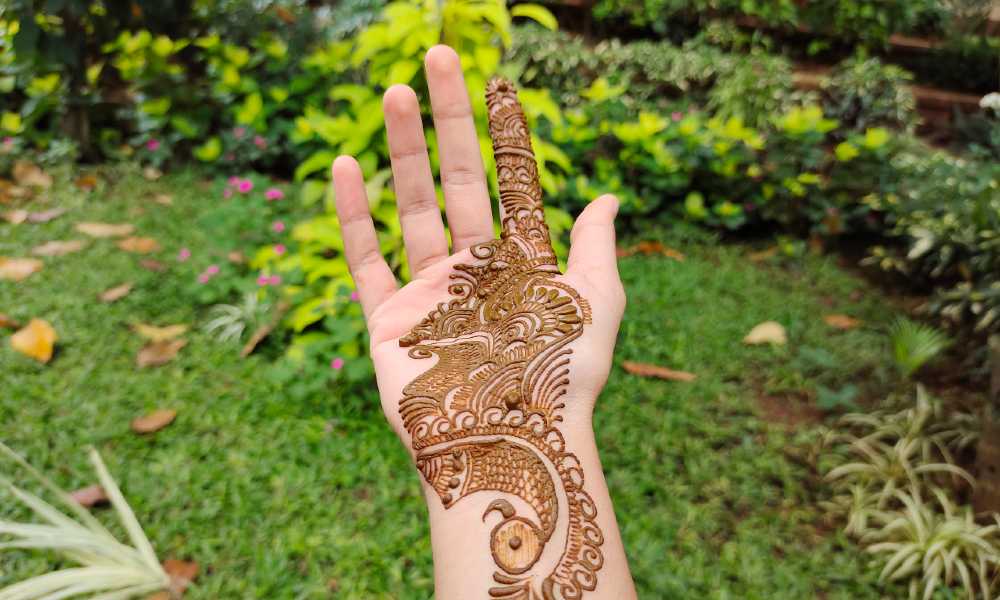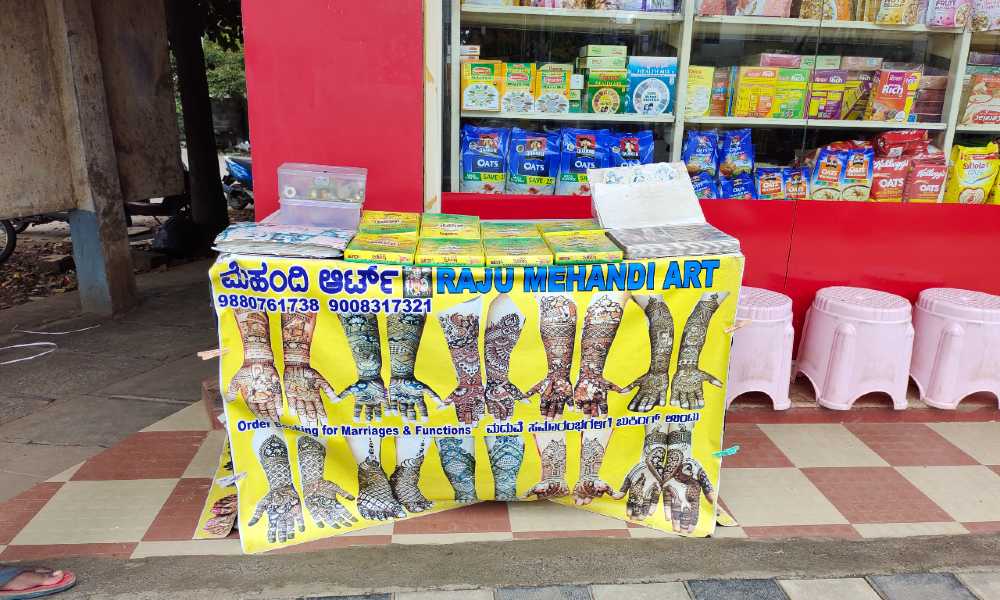Wedding restrictions during COVID-19 hampered the business of henna designers across the country.
Henna designers in India are struggling to keep their businesses alive after COVID-19 wedding restrictions led to a decrease in the number of customers. This reduced the demand for henna designers, and many people had to find other jobs.
Laxman, a henna designer from Bengaluru said, “My whole family is in the henna business. Henna for one palm costs Rs. 100. When the pandemic hit, our income went down by 75 percent. Brides cancelled their orders because of the government’s COVID restrictions and even the customers who came to us opted for simple, low-cost designs. There was less demand; our 25 designers went back to their villages.”
During COVID-19, the Department of Health and Family Welfare Services in Karnataka had issued an advisory for weddings and gatherings. The advisory limited the guests to 50.

Although there is a bigger market for henna in north India, celebrity henna designer Veena said the pandemic impacted every designer. She said she has catered in Mumbai and Delhi tocelebrities like Deepika Padukone, Karishma Kapoor and Aishwarya Rai She added that smaller designers were affected more.
“When Delhi was on high alert during COVID-19, it was tough. Clients got scared and cancelled orders. I head a team of 150 women—we divide whatever orders we get between ourselves. But the low demand left many without jobs. These women have children to feed, clothe and educate. And even when they do get a little work, they need to spend money on travel costs from one area in Mumbai to another. Why aren’t there schemes for henna designers like there are for other sectors? Why don’t we get any relief?” asked Veena.
The restrictions affected mid-range designers too, but not as much as it affected smaller designers. Pushpa Mehendi Arts in Bengaluru is known for its modern henna designs.
“We are a team of 30 designers. Our henna designs cost anywhere between Rs. 5000 – Rs.22,000. The overall revenue decreased by 75 percent because other orders were cancelled,” said manager Kailash.
Henna designers said that because there are no schemes to benefit them, they are trying to upskill themselves and get more exposure.

“We have video-call workshops called ‘Hennathons’ that help designers to upskill themselves. But smaller designers in the industry don’t have access to this because of their low knowledge of social media—maybe that is why they have suffered more during the pandemic,” said Kailash.
Customers said they were afraid to breach the restrictions. Apoorva, who had her wedding ceremony during the COVID-19 second wave in April 2021 said, “I wanted to have a big henna ceremony but because of the pandemic, I called only 25 people. But only five people attended because the rest were afraid of contracting the virus.” She added that she had initially called five designers for the henna ceremony but had to ask the other three not to come because of the situation.

Some small henna artists use social media but in limited capacity. They have relied on word of mouth as their main promotion for years and are now faced with the challenge of changing their strategy due to COVID-19.
Sapna is a local henna artist who applies henna for customers at her house. She said, “I have a page on Facebook to promote my henna but I have no promotion on any other social media. There was a point during the pandemic when I had no customers at all. This was very difficult for me. I can only hope that things will change.”
Lawyer Vinay Sreenivasa focuses on issues in the informal sector, street vendors and urban poverty. He said that India generally does not have many schemes for the unorganized sector. He said, “What henna designers need is a robust system in place to assist them with social security, insurance and other rights. In my opinion, the smaller henna designers on the streets should come under the bracket of street vendors—these vendors are protected by The Street Vendors (Protection of Livelihood and Regulation of Street Vending) Act, 2014. Henna designers should be recognized under a law.”




